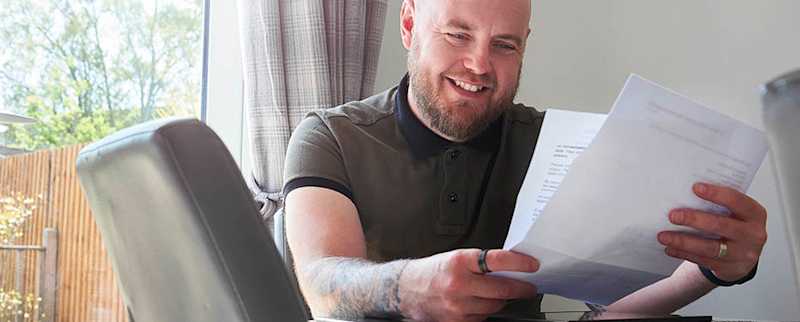
People With Problem Debt Could Get ‘Breathing Space’ From Mounting Interest
The Coronavirus pandemic has had a significant impact on the nation’s finances... in fact, personal debt levels have increased by a significant £15.1 billion, compared to February 2020.
As a result, the average household debt now stands at over £60,000 and 1 in 9 people haven’t been able to cover their household bills, according to new research from Citizens Advice.
However, there is light at the end of the tunnel for those in difficult financial situations. The government has recently launched a new scheme that will help millions of people struggling with high levels of debt. It’s called the ‘breathing space’ scheme.
What is the ‘breathing space’ scheme?
The new government scheme is designed to help those experiencing financial hardship get in control of their debt.
It gives people a 60-day break from mounting charges and interests – allowing them to pay down their debt to a more manageable level.
Additionally, all lenders must halt enforcement action during the two-month respite period. This means lenders will not be able to send threatening letters or start court proceedings, also giving people temporary relief from the stress and pressure associated with unaffordable debt.
What are the experts saying about the new scheme?
John Glen, Economic Secretary to the Treasury, said: "This scheme will give people a breathing space from charges, distressing letters and bailiff visits, so they can tackle their problem debt with support from a professional debt advisor."
Phil Andrew, Chief Executive of StepChange debt charity, added: "Giving people the statutory protection of a time period to help them begin to deal with their debts is a huge step up from the previous voluntary, patchy approach."
Martin Lewis, founder of MoneySavingExpert.com was delighted to see the scheme introduced, calling it a win for the debtors, creditors and the economy. He said: “Debt is far more than just a financial issue. It’s a major cause of relationship breakdown, can hugely diminish people’s well-being, and sadly leaves 100,000s at risk of taking their own lives. That’s why it’s a delight to see this scheme introduced, after long campaigning, as it will truly save lives.”
How does ‘breathing space’ scheme work?
For anyone who is thinking about applying for the government’s ‘breathing space’ scheme, continue reading for a more in-depth look at how it works…
The ‘breathing space’ is valid for 60 days
People usually have a two-month relief period in which to pay down their debt. Just be aware, that it could end earlier than the 60 days if the scheme is cancelled by a court or debt adviser.
Extra 30 days for people receiving health treatment
The ‘breathing space’ rules state that anyone who is being treated for a mental health condition may be able to extend the scheme by 30 days, to a total of 90 days.
Most debts are covered by the ‘breathing space’
The debts which are covered by this government scheme include: credit and store cards, personal loans, payday loans, overdrafts, council tax arrears, and mortgage or rent arrears.
All interest, late payment and other charges must stop
The ‘breathing space’ is designed to offer temporary relief from mounting interest charges and other fees. Therefore, lenders will not be able to add any extra costs to your debt and these cannot be backdated after the scheme has ended.
Creditors to stop any legal action
No bailiff visits. No utilities being shut off. No legal proceedings. The scheme gives people a mental break from the crippling stress of debt and the time they need to focus on improving their financial circumstances.
Limited number of applications
It’s important to note that people can only benefit from the scheme once every 12 months, unless that person is undergoing mental health treatment. If this is the case, there is no limit to the number of times they can apply.
Debt repayment must still be made
Although the scheme offers a break from all additional fees and legal action, it doesn’t mean a person is allowed to stop making their debt repayments. This is still a compulsory requirement.
How do people access the scheme?
People with unaffordable levels of debt can get ‘breathing space’ through debt help charities, local councils and debt advice organisations.
Applications can only be handled by a professional debt adviser. To find out more, you can contact StepChange, Citizens Advice, National Debtline or CAP.

